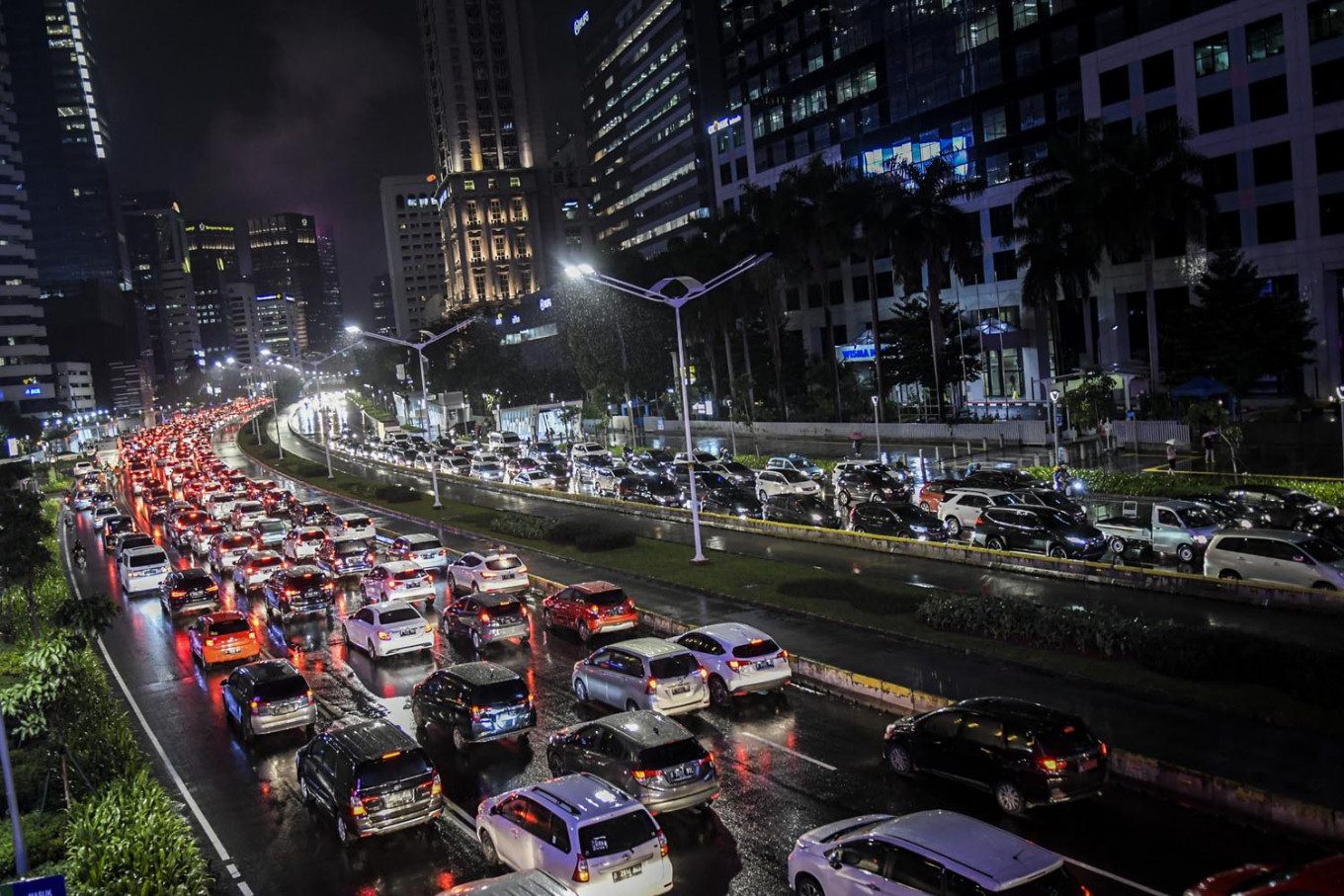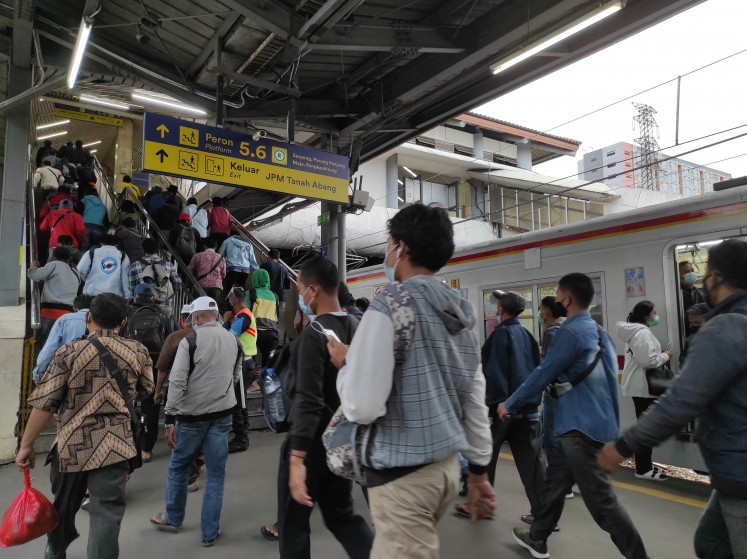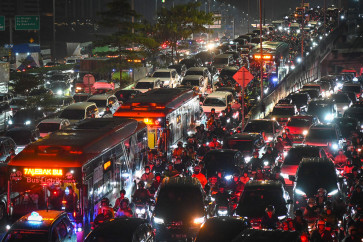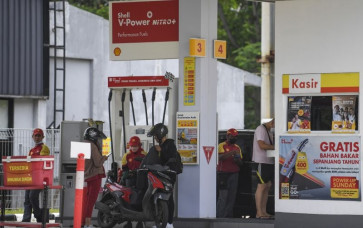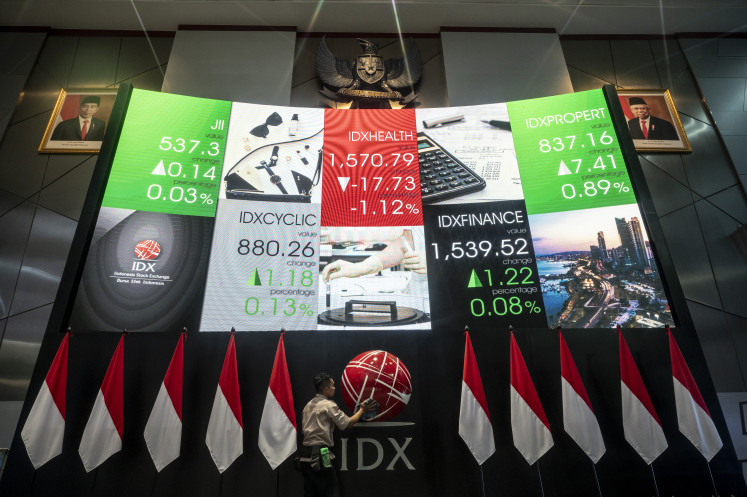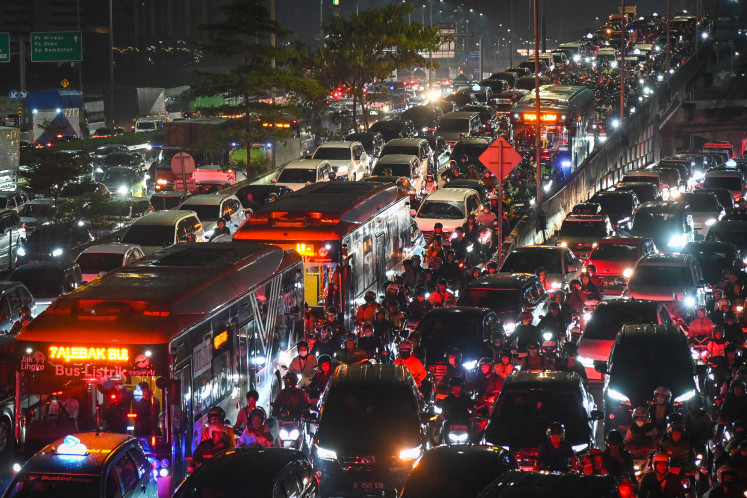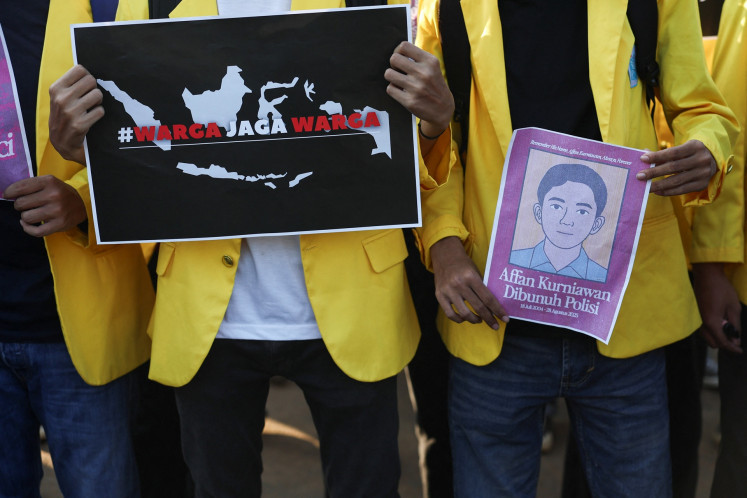Popular Reads
Top Results
Can't find what you're looking for?
View all search resultsPopular Reads
Top Results
Can't find what you're looking for?
View all search resultsJakarta plans to reimpose odd-even license plate policy
Change text size
Gift Premium Articles
to Anyone
J
akarta is considering reimposing the odd-even license plate policy for private cars as traffic returns. But concerns have grown that the policy might force people to shift to public transportation, which could lead to passengers overcrowding the transit networks, increasing the risk of coronavirus transmission.
The Jakarta Police traffic unit suggested to the city administration that the odd-even policy should return to the city streets, after recording an 11.5 percent increase in the number of vehicles on the roads during morning rush hour.
“This caused congestion in the morning,” Jakarta Police traffic director Sr. Comr. Sambodo Purnomo Yogo said last week as reported by kompas.com. “[So] we made the suggestion. But we need to discuss it with other institutions, [particularly] the transportation agency, [which is responsible for transportation policy].”
The odd-even policy restricts access to certain roads to cars with odd-numbered license plates on odd-numbered dates, while cars with even-numbered license plates can only access the roads on even-numbered dates. Before the pandemic, it was imposed on 25 thoroughfares across the capital from 6 a.m. to 10 a.m. and 4 p.m. to 9 p.m.
Read also: Return of odd-even policy increases ridership, Jakarta Police say
The Jakarta Transportation Agency is still waiting for recommendations from the Jakarta Transportation Council (DTKJ), which is currently weighing whether the traffic curb is necessary, tempo.co reported.
Agency head Syafrin Liputo said that even if the policy was put back in place, it would not be implemented in 25 thoroughfares at once, but gradually on certain streets based on the severity of traffic congestion.
The agency, he said, would also consider the state of the pandemic in neighboring regions, whose several million residents commute for work to Jakarta, and ensure public transit operators provide additional services to prevent crowding.
Commuters crowd Tanah Abang Station, one of Jakarta's busiest commuter line stations, after office hours on Jan. 28. (JP/Ardila Syakriah)The odd-even traffic curb was lifted in April last year when Jakarta Governor Anies Baswedan implemented the so-called large-scale social restrictions (PSBB) following the discovery of COVID-19 cases in the city.
The traffic policy was reimposed in August of last year when the city administration eased mobility restrictions, only to be lifted again a month later when the city returned to PSBB due to a rising number of infections.
The implementation of the traffic policy at the time made private car users shift to public transit. Daily ridership on commuter line trains increased 3.5 percent from an average of 400,000 passengers a day, while the number of passengers on Transjakarta buses grew 6 to 12 percent.
The national COVID-19 task force at the time called on the city to review the policy following reports of new infection clusters linked to public transportation. It found that 62 percent of the 944 coronavirus patients hospitalized at the COVID-19 emergency hospital in the Kemayoran Athletes Village in Central Jakarta were users of public transportation.
Read also: Jakarta asked to evaluate odd-even plate policy as public transportation use surges
Transportation experts said Jakarta should postpone the new plan to reimpose the odd-even policy due to the current surge of COVID-19 cases, and focus on pandemic control instead.
The city is continuing to report an increase in daily infections after the Idul Fitri holidays in mid-May, averaging over 800 cases, with occasional decreases to below 500 on certain days. Hospitalizations are also up 3 percent.
Meanwhile, only 18 percent of the targeted 10 million people in Jakarta have been vaccinated.
“It will be better to wait until a large fraction of the Jakarta population is vaccinated,” Deddy Herlambang of the Institution of Transportation Study (Instran) told The Jakarta Post on Sunday.
Transportation expert Alvinsyah of the University of Indonesia said authorities must tighten the work-from-home policy and limit operating hours of shopping malls and dine-in service to curb mobility.
Read also: Jakarta sees surge in workplace clusters as people lower their guard after vaccination
The Jakarta administration has advised companies to require 50 percent of their employees to work remotely, in line with the rule under the existing micro-scale public activity restrictions (PPKM Mikro) -- which generally are more lenient than the PSBB.
But in reality, many workplaces, especially those whose essential workers have already been vaccinated, are operating at full capacity.
If Jakarta insists on reinstating the traffic policy for private cars, it must ensure that all public transportation operates at half capacity, Alviansyah said.
"The city needs to identify the number of car users affected by the odd-even policy to determine how many seats on public transit are needed to prevent crowding.”
On Sunday, Jakarta recorded more than 1,000 new cases, bringing the total tally citywide to around 435,000 with over 7,400 deaths.

